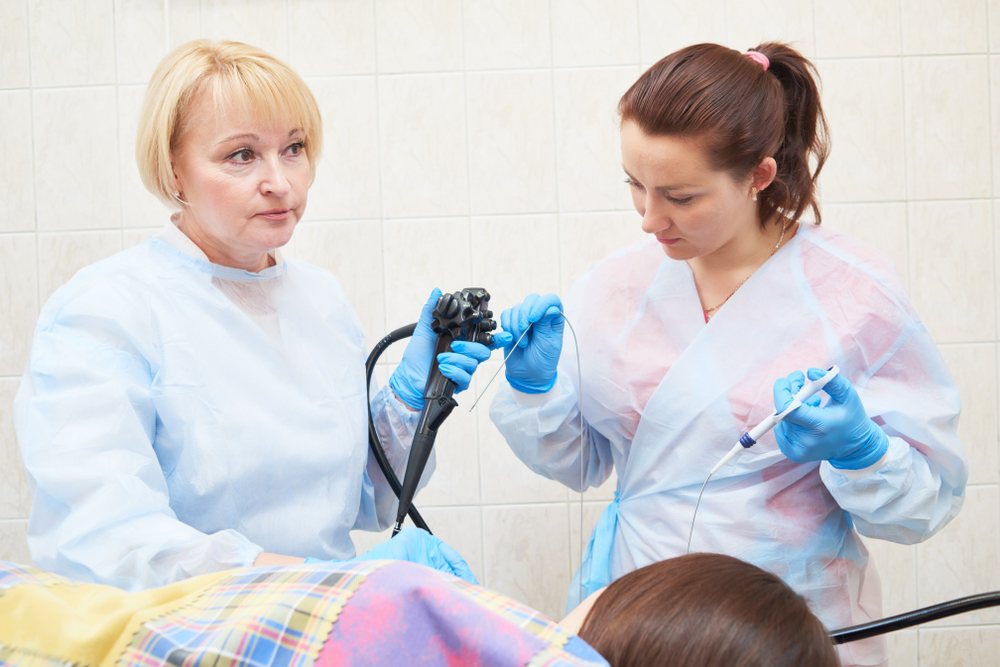Ever wondered who helps doctors during those camera-in-the-body tests? That’s where an Endoscopy Nurse comes in. These nurses play a key role in helping patients feel at ease before, during, and after endoscopic procedures, such as when doctors use a tiny camera to look inside the stomach or intestines. It’s a hands-on job that mixes medical skills with personal care. As more people need these tests, the demand for trained Endoscopy Nurses is rising fast, making it a great career choice for those looking to grow in the nursing field.
What is an Endoscopy Nurse?
An Endoscopy Nurse, sometimes called a GI nurse, is a registered nurse (RN) who assists in procedures involving endoscopes — flexible tubes with a light and camera used to visualize the digestive tract. These procedures include colonoscopy, esophagogastroduodenoscopy (EGD), sigmoidoscopy, bronchoscopy, and endoscopic ultrasound, among others.
Endoscopy Nurses work in a variety of settings, including hospitals, outpatient surgical centers, specialty GI clinics, and sometimes mobile units. They are integral to the success of each procedure and the safety of every patient undergoing diagnostic or therapeutic GI interventions.
Key Responsibilities of an Endoscopy Nurse
The role of an Endoscopy Nurse is multifaceted. These professionals are trained to provide both technical and emotional support to patients and collaborate closely with physicians, anesthesiologists, and other members of the healthcare team. Their responsibilities span across the pre-procedure, intra-procedure, and post-procedure phases.
Pre-Procedure Responsibilities
- Patient Assessment: Conducting comprehensive assessments to evaluate medical history, allergies, vital signs, and readiness for the procedure.
- Informed Consent: Verify that informed consent has been obtained and ensure the patient understands the procedure.
- Preparation: Administer bowel preparations or sedation (if required) and ensure all equipment is sterilized and functional.
- Education and Support: Offering emotional reassurance and explaining the process to patients, easing anxiety, and answering questions.
Intra-Procedure Responsibilities
- Assisting the Physician: Handling instruments, monitoring equipment, and ensuring patient safety during the procedure.
- Sedation Monitoring: Observing the patient’s response to conscious sedation or anaesthesia, including heart rate, oxygen saturation, and level of consciousness.
- Documentation: Recording procedure details, time stamps, medications administered, and observations accurately.
Post-Procedure Responsibilities
- Recovery Monitoring: Observing patients during recovery from sedation, checking for signs of complications such as bleeding or perforation.
- Post-Procedure Instructions: Educate patients about post-procedure care, including diet, medication, and symptoms to watch for.
- Follow-Up Coordination: Assisting with appointments, lab tests, or biopsy results as needed.
Skills and Qualities of a Successful Endoscopy Nurse
The endoscopy suite is a dynamic, fast-paced environment that requires a specific set of clinical and interpersonal skills. A successful Endoscopy Nurse typically possesses the following traits:
- Attention to Detail: Precise documentation and vigilance during procedures are vital for patient safety and successful outcomes.
- Manual Dexterity: Handling delicate instruments and assisting in minimally invasive procedures demands steady hands and coordination.
- Critical Thinking: The ability to anticipate complications and act swiftly under pressure is essential.
- Empathy and Communication: Comforting patients and clearly explaining procedures require high emotional intelligence.
- Adaptability: Endoscopy nurses must be comfortable with rapidly changing technologies and protocols in gastroenterological care.
Education and Certification Requirements
To become an Endoscopy Nurse, one must first qualify as a Registered Nurse (RN) by earning either an Associate Degree in Nursing (ADN) or a Bachelor of Science in Nursing (BSN) and passing the NCLEX-RN examination.
Additional Training and Certifications:
- On-the-Job Training: Most Endoscopy Nurses begin with general nursing experience and receive specialized training within their healthcare facilities.
- Certification in Gastroenterology Nursing (CGRN): The American Board of Certification for Gastroenterology Nurses (ABCGN) offers this voluntary certification, which demonstrates expertise and professionalism.
- Basic Life Support (BLS) and Advanced Cardiac Life Support (ACLS) are required to monitor patients under sedation.
Although certification is not mandatory, but highly recommended for career advancement and increased credibility in the field.
Career Path and Advancement Opportunities
The career path for an Endoscopy Nurse offers several avenues for growth and specialization:
-
Clinical Advancement
Experienced Endoscopy Nurses can take on senior roles such as:
- Charge Nurse
- Nurse Supervisor
- Clinical Nurse Specialist
These roles involve overseeing procedures, managing teams, and ensuring adherence to safety protocols.
-
Education and Training
Nurses passionate about teaching may transition into roles such as:
- Clinical Educator
- Preceptor for New Nurses
- Conference Speaker or Workshop Trainer
-
Research and Development
Some nurses with a background in endoscopy participate in clinical trials or research projects to improve GI procedures or develop new technologies.
-
Administration and Leadership
Some Endoscopy Nurses advance into administrative roles, managing GI units or directing nursing departments within hospitals or clinics.
Work Environment and Daily Schedule
Endoscopy Nurses typically work in well-equipped, sterile environments, often in:
- Hospital endoscopy units
- Outpatient surgical centers
- GI clinics
- Specialty private practices
Schedules can vary depending on the facility. Most endoscopy procedures are scheduled during daytime hours, making this specialty attractive to nurses seeking work-life balance compared to other high-intensity nursing roles.
Challenges Faced by Endoscopy Nurses
Despite the rewarding nature of the job, Endoscopy Nurses face several challenges:
- Physically Demanding: Long periods of standing, assisting with patient transfers, and wearing PPE can be taxing.
- Emotional Stress: Comforting anxious patients or dealing with difficult diagnoses requires emotional resilience.
- Sedation Risks: Monitoring patients under sedation carries a high level of responsibility.
- Equipment Handling: Regular training is essential in handling delicate and expensive instruments.
However, for nurses drawn to technical procedures and direct patient care, these challenges often feel like rewarding aspects of a fulfilling role.
Salary Expectations
Salaries for Endoscopy Nurses vary depending on location, experience, and certifications. On average:
- Entry-Level: $60,000 – $75,000 annually
- Mid-Level: $75,000 – $90,000 annually
- Senior-Level: Over $100,000 annually, especially with certifications and leadership roles
Those working in metropolitan areas, private surgical centres, or leadership roles tend to earn higher salaries.
You may also read: Per Diem Nursing: Benefits, Challenges, and Career Growth Opportunities
Healthcare Employment Opportunities for Endoscopy Nurses
The demand for Endoscopy Nurses continues to grow as diagnostic and therapeutic endoscopic procedures become more common in both preventive care and chronic disease management. With advancements in technology and an ageing population requiring more gastrointestinal procedures, this niche in nursing is expected to flourish. Whether you’re a newly licensed RN looking for your niche, or an experienced nurse seeking a more balanced work environment with technical challenges, becoming an Endoscopy Nurse offers a fulfilling and respected career. Moreover, this speciality opens the door to a variety of Healthcare Employment Opportunities, from clinical practice and patient care to education, leadership, and research.
If you’re passionate about precision, patient advocacy, and continuous learning, endoscopy nursing might just be the perfect career path for you.


